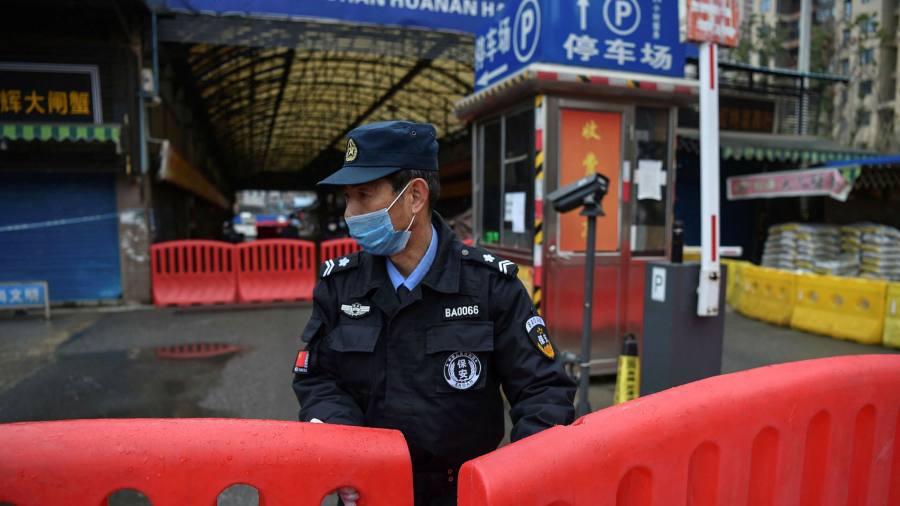[ad_1]
When Donald Trump said last May he was “confident†that a vaccine would be ready by the end of 2020, the US president was upbraided by NBC with what has become in recent years a popular journalistic and political device: the “fact checkâ€. “Experts say he needs a ‘miracle’ to be right,†the broadcaster declared.
Facebook used the same device last week on a piece from UnHerd that criticised the World Health Organization’s Covid-19 investigation for dismissing the possibility the virus leaked from a Wuhan laboratory as “extremely unlikelyâ€. The social media platform labelled the article with a “false information†tag, though the virus’s origins have not been established. Facebook alleged the article contained “information . . . that independent fact-checkers say is falseâ€. After UnHerd objected, Facebook apologised; three days later the White House expressed “deep concerns†about the WHO probe.
I find these examples troubling. In both cases it wasn’t facts that were being checked. Perhaps Trump had no evidence to justify his confidence. But to “fact-check†his views feels to me like the politicisation of a device meant to support objectivity. Fact-checking can be a powerful tool in the fight against online falsehood. But it can be used as a means of censorship if not only facts but also opinions and narratives are checked.
Facebook’s intervention is particularly concerning, especially in light of the company’s decision to block postings from legitimate news organisations in Australia. It did not remove UnHerd’s article entirely but its algorithms are programmed so that anything with a “false information†tag appears lower on users’ newsfeeds.
Facebook has partnerships with independent fact-checkers such as Full Fact and PolitiFact, which are part of the International Fact-Checking Network and abide by a common set of principles. But in the UnHerd case, the decision was made by the company’s internal fact-checking team, which provides little transparency about how it operates. “When an internet company comes in and makes its own content moderation decisions, under the label of fact-checking, that’s not fact-checking,†says Will Moy, chief executive of Full Fact.
What gets called fact-checking too often feels like political point-scoring, but with the veneer of impartiality. In the run-up to last year’s US election, a number of outlets ran fact-checks on a video of Joe Biden seeming to get confused about Trump’s name and referring to someone called George. “No, Biden did not confuse George W Bush and Donald Trump,†the Washington Post wrote, arguing that he must have been talking directly to the interviewer George Lopez.
The paper gave the claim that Biden had been confused “four Pinocchios†— its rating for the most mendacious claims. I’ve watched the video and find it implausible that Biden was addressing Lopez, but neither I nor the Post can be sure either way. I think “fact-checking†such a claim makes a mockery of the whole concept. And scoring systems like the number of “Pinocchios†or PolitiFact’s “Truth-O-Meter†make it even harder to reach nuanced conclusions.
Stephen Ceci, a Cornell psychology professor, suggests one solution might be to institute “adversarial fact-checkingâ€: have fact-checkers from different ends of the political spectrum examine a claim and present the competing evidence to the public.
This seems sensible to me: where ambiguity exists, it should be communicated. Still, I wouldn’t want to live in a postmodernist world in which no objective reality is acknowledged — facts matter and are needed for a functional democracy.
Fact-checking helps, but over-reach must be avoided. Last week, a Poynter Institute newsletter complained that the social media app Clubhouse, which allows users to listen to and take part in audio discussions, “produces barriers for fact-checkers†because it doesn’t keep its audio files or allow recordings.
Used correctly, fact-checking contests falsehoods in ways that complement free speech. But free speech is about letting people be wrong as well as right. We must limit the checking to facts, which is tricky enough, and not opinions that the checkers don’t happen to like.
[ad_2]
Source link





